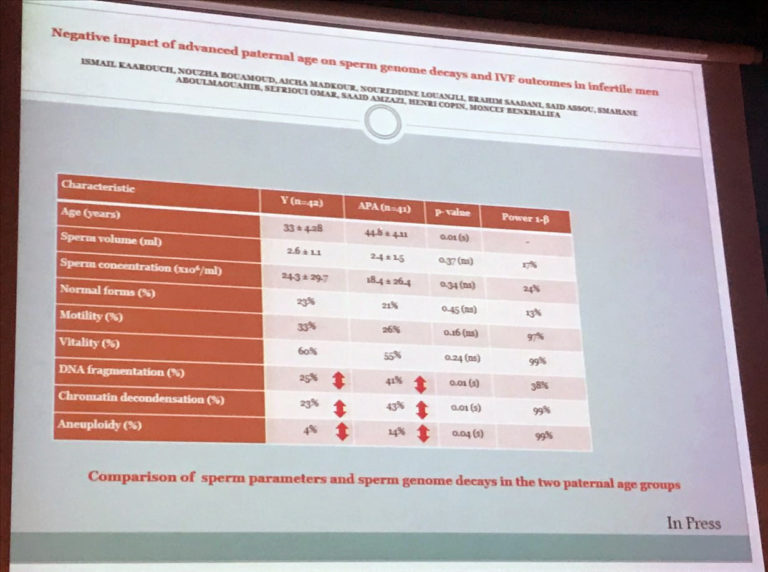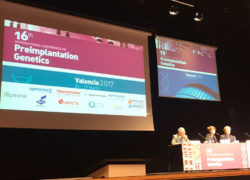The International Conference on Genetic Pre-implantation ( PGDIS2017 ) and Dr. Marcia Riboldi, director of Igenomix Brasil and also Bruno Coprerski, lab manager of Igenomix Brasil, are taking part in the activities that we are going to summarize in Valencia, Spain, from 26 to 29 March. daily for you!
The personalized medicine was one of that day’s focus. Currently, the scientific community in the health field knows that this is the most effective form of treatment, since different patients do not respond to the same protocol, but putting this concept into practice requires a more complete initial diagnosis of the patient. The same goes for overcoming infertility and achieving the birth of a healthy baby .
Genetics is a key part of the personalization of medicine because it largely depends on the responses of a person’s body to one or another treatment, but there are also other factors of influence, which leads to the need to compose the presented biomarkers of personalization in PGDIS2017.
The plenary Genetic contribution to human disease, the impact of personalized medicine , presented by Angel Carracedo, illustrated very well how biomarkers should be integrated through morphological, biochemical and physical analysis, establishing a relationship with genetic, epigenetic and environmental factors.
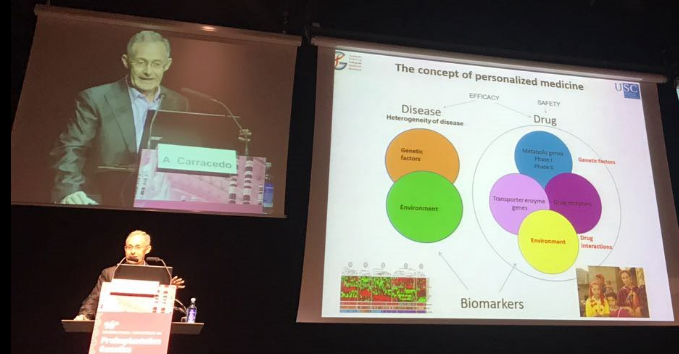
Prevent diseases through genetic panels
Genetic diseases still have no cure and treatments, when available, are often expensive and insufficient to guarantee the quality of life of the carriers.
While the cure of genetic diseases has yet to go a long way, one in every 280 births (United States) is affected by some genetic disease . To stop this problem, it is already possible to prevent genetic diseases before conception through genetic panels of carriers to assess the risks and develop strategies for the birth of a healthy baby.
There is an effort by experts to warn that inherited recessive genetic diseases can occur without a family history because they manifest themselves only when the father and mother are carriers, even if they do not develop the pathology. Therefore, in an ideal world, all future parents are candidates to realize a genetic panel of carriers.
With the support of genetic counseling , prospective parents can conduct genotype studies to identify specific diseases or genetic sequencing, which identifies genetic alterations that may cause even a disease not yet cataloged in the medical literature.
Dr. Santiago Munné, in his presentation made a summary of pros and cons of preventive alternatives:
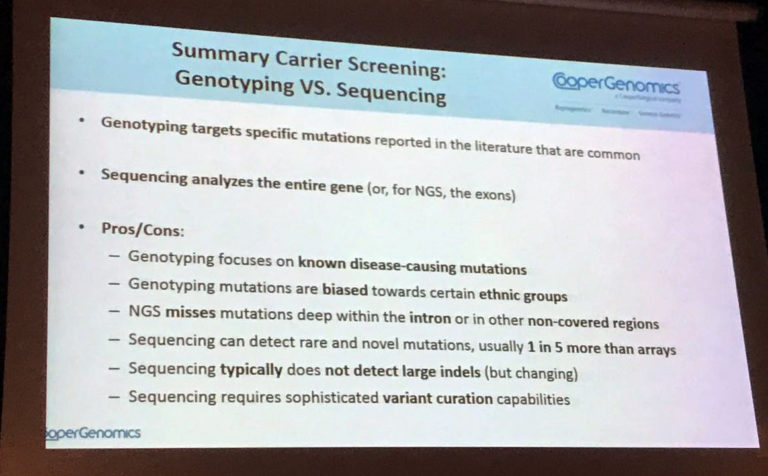
Each person carries approximately 23 severe recessive mutations, and for this reason, genetic panels that study the genetic compatibility of the couple are a good alternative to prevent genetic diseases through family planning.
Genetic change statistics:
-
1/280 births are affected with genetic diseases
-
80% of affected births had no family history of the disease
-
70% of CarrierMap diseases (314) are not covered by ACOG and ACMG indications
Consanguineous couples should be more attentive to the prevention of genetic diseases
During the PGDIS the specialists are analyzing and discussing the advantages of performing the genetic compatibility panel (CGT) in all patients regardless of indications, however, there is no doubt about the need for genetic study for consanguineous couples , such as marriage between cousins.
Consanguineous couples present a genetic risk of 16% while in the general population of non-consanguineous couples the risk is 5.8%
Polymorphism: The Genetic Influence on Infertility
One of the great novelties of the first day of the International Conference on genetic pre-implantation was the possible influence of genetic polymorphism on the fertility of the couple.
Polymorphisms are small changes that chromosomally normal embryos can carry in specific genes. These anomalies could be one of the explanations of why the euploid embryos do not implant . More studies will be needed to come to a conclusion. For now, Dagan Wells, presented his research aimed at advancing the future development of a panel capable of identifying genetic factors of infertility .
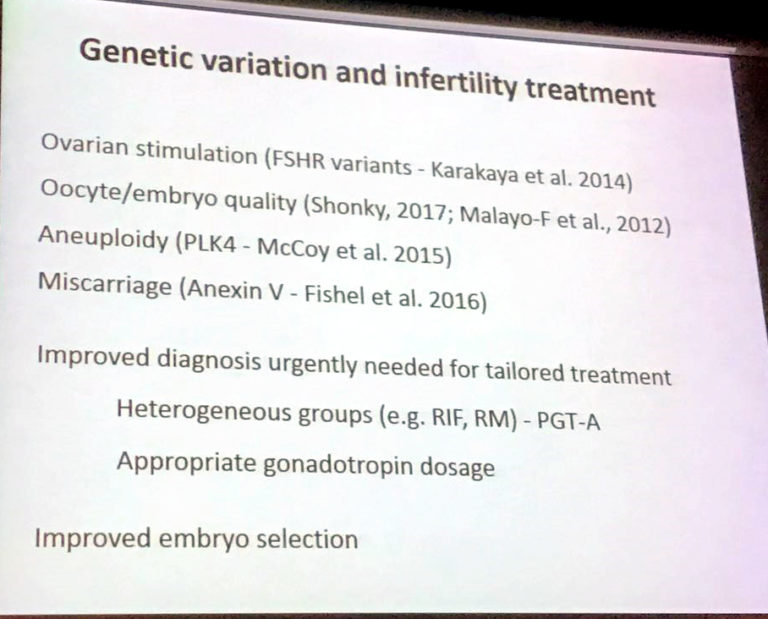
Paternal age also influences chromosomal changes in embryos
The risk of embryonic aneuploidies, that is, chromosomal changes in embryos, are clear in cases of advanced maternal age (over 37 years), which there were doubts was whether the paternal age could also influence these changes that can lead to the failure of the treatment of human reproduction with non-implantation of the embryo or even gestational loss.
In 2016 Drª Carmen Rubio presented at the X Paulista Congress of Reproductive Medicine the study carried out by Igenomix that proves that the decrease in the concentration of spermatozoa is associated with an increase of the chromosomal alterations of the embryo , reason why it is indicated for the couples with this factor of infertility to perform pre-implantation genetic screening (PGS).
Today through the contribution of the specialist Moncef Benkhalifa, we could verify that the influence of the paternal age occurs later, but is a reality observed when the age is superior to 44 years.
